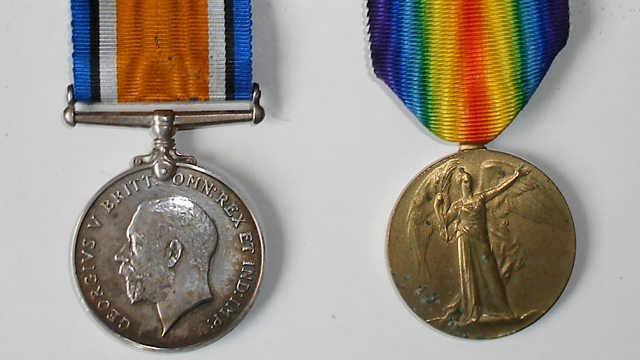Somerset Cricket Museum, Taunton
Amazing finds of a WW1 and cricketing legend
Louise Perrin may well have made the find of a lifetime: βI started to get excitedβ¦ my fingers started to twitch in that curatorial way.β Itβs only a dedicated history buff or a conservator of precious memorabilia who can truly understand the utter joy of stumbling across treasure by sheer accident.
Louise is a researcher and a trustee at the Somerset Cricket Museum in Taunton. Her great discovery was the unearthing of the World War One medals of the legendary Somerset and England all-rounder, Len Braund. Whatβs even more remarkable is that it happened while she was curating an exhibition about the cidermen who fought in WW1.
On a birthday trip to the Devon town of Topsham she chanced upon Braundβs medals as she wandered around an antiques centre on the quay. At first uncertain at what she was looking at, Louise made a hasty phone call to the Cricket Museum to check the regiment and army service number of the great Edwardian sportsman. Confirmation of his enlistment in the Royal Army Medical Corps and his service number, 80848, was the information she needed to buy Lenβs British War Medal and the Victory Medal and bring them back to his spiritual home in Taunton.
Leonard Charles Braund was born in the Berkshire village of Clewer, in the shadow of Windsor Castle, on 18 October 1875. He started his playing career with Surrey, becoming a remarkable cricketer and a favourite with the Somerset faithful during his years at Taunton between 1899 and 1920. On six separate occasions he made more than 1,000 first-class runs in a season and took more than 100 first-class wickets in a season four times. In fact he achieved the 'cricketers' double' three years in a row (1901-03).
His remarkable bowling record in 1902 was 172 wickets and throughout his first-class career he made 17,801 runs, took 1,101 wickets and no fewer than 508 catches.
The sports journalist and ΒιΆΉΤΌΕΔ Somerset cricket commentator Stephen Lamb says Braundβs impressive record stands the test of time: βHe was an excellent right -hand batsman, he bowled leg breaks and he was a sensationally good slip fielder.β With talent like that, it was inevitable that he would catch the eye of the England selectors.
He made his debut in the 1901-02 tour of Australia and went on to play 23 times for the national side in total. The England captain, C B Fry described Braund as: "one of the greatest all-round cricketers -- and to think that Surrey let him go! He was a most valuable member of the England team and as cool as a cucumber."
Virtually nothing is recorded about his service during WW1. But we do know that when peace came he returned to the County Ground. When his playing career ended, Len became a much-respected umpire but thereβs a tragic post script to Braundβs story. In later life ill health meant that he had to have both his legs amputated, forcing him to spend most of his time in a wheelchair. He died in 1955 and although feted by the MCC in his twilight years, so much time had elapsed since his cricketing heyday that his passing went almost unnoticed by the public at large.
Now thanks to Louise Perrinβs unexpected antiques find, the war medals of this long-forgotten sporting hero have pride of place just yards from the ground where he thrilled thousands of fans.
Location: Somerset Cricket Museum, Taunton TA1 1XX
Image: Len Braund, courtesy of Somerset Cricket Museum, and Lenβs medals courtesy of Louise Perrin
Duration:
This clip is from
Featured in...
![]()
ΒιΆΉΤΌΕΔ Somerset—World War One At ΒιΆΉΤΌΕΔ
Places in Somerset that tell a story of World War One
More clips from World War One At ΒιΆΉΤΌΕΔ
-
![]()
The loss of HMY Iolaire
Duration: 18:52
-
![]()
Scotland, Slamannan and the Argylls
Duration: 07:55
-
![]()
Scotland Museum of Edinburgh mourning dress
Duration: 06:17
-
![]()
Scotland Montrose 'GI Brides'
Duration: 06:41







